CCG Webinar | Global Governance and Cooperation in Public Health
August 19 , 2020
This year, the world has faced a major public health challenge due to COVID-19. In this time of crisis, how should countries work together and fight the disease? In the long run, how can we coordinate disease control and prevention and promote economic recovery and sustainable growth? How should countries cooperate in the development and distribution of vaccines?
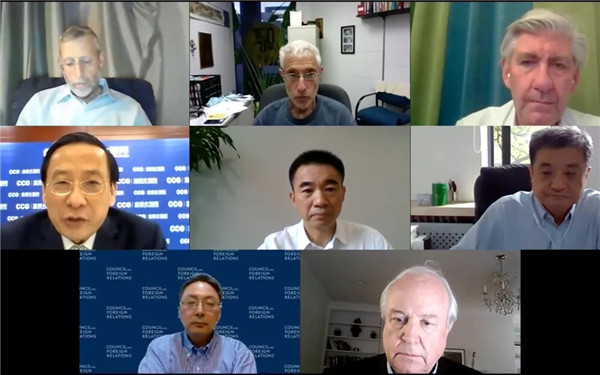
On August 19, the Center for China and Globalization (CCG) held a webinar on the theme of global governance and cooperation in the public health sector. The event brought together a group of leading experts in relevant fields to share their thoughts and insights on the issue.
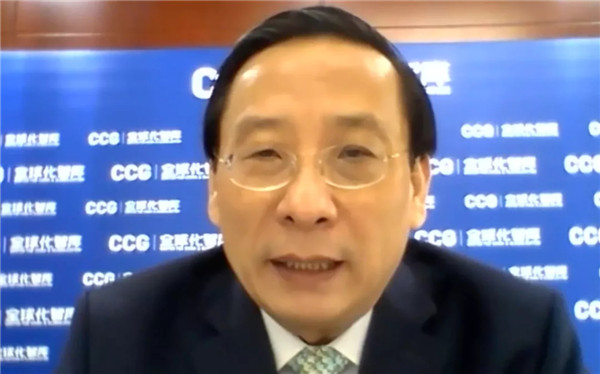
Victor Gao, vice president of CCG, said that humankind has hit by COVID-19 and there is no sign on the global scale that things are getting better. Looking across the world, there were different ways in dealing with this pandemic and different governments have adopted different paradigms and methods to fight the pandemic. Gao expressed hope that all the countries in the world can rally around the WHO to strengthen international cooperation against COVID-19 and any major virus attack which may happen in the future. Besides, he emphasized that there is only one truly effective strategy against COVID-19, which is to fight against this pandemic with science rather than politics. He emphasized that China–US cooperation needs to be restored and strengthened.
The Current Situation in Fighting COVID-19
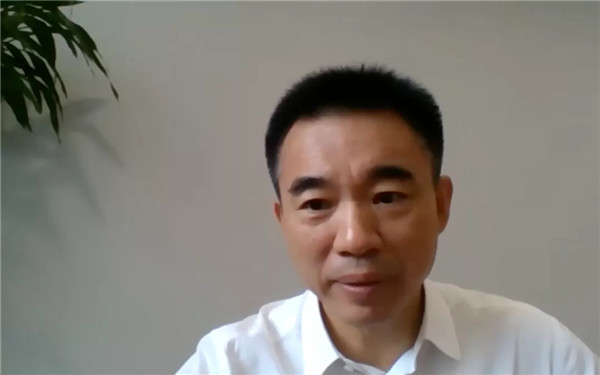
Wu Zunyou, chief epidemiologist at China’s CDC (Center for Disease Control and Prevention), pointed out four important scientific findings in the first three weeks after the outbreak of COVID-19 in China: isolating the virus, identifying the pathogen for COVID-19, and sharing the genome sequence that could be used to develop test kits; determining the incubation period; and determining transmission mode. He noted that China shared information with the WHO and other countries such as the United States, Japan, Korea, United Kingdom, Germany, and other European countries very early on 3rd January. Wu added that China has facilitated communication with over 150 countries to share information about the epidemic and the lessons learned. He said that China’s CDC and the US CDC have had regular technical communication since the outbreak of COVID-19. He suggested that communications between non-governmental organizations and academic institutes have also been strong.
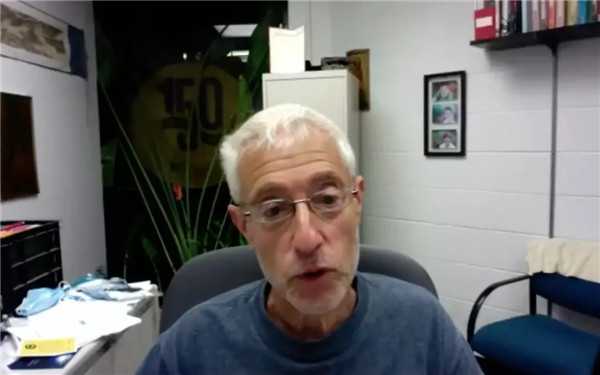
Stanley Perlman, professor of Microbiology and Immunology at the University of Iowa, said that the pandemic had brought the research community closer within and across countries, even between the US and China. He highlighted how the coronavirus is an accelerator for problems of globalization and nationalism, and blaming each other will make cooperation less likely. Because of the uncertain vaccine development and poor balance between economic and scientific issues in the US, he predicted that the coronavirus might last for 18 to 24 months. He was concerned about the effect of the pandemic on individuals, with many people working from home for months and less social interactions happening at bars and restaurants.
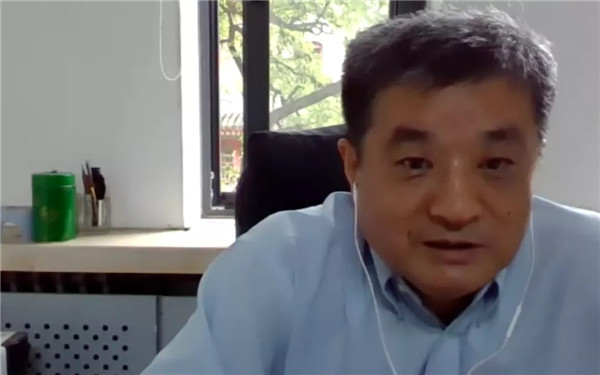
Zha Daojiong, academic advisor of CCG and professor at the School of International Studies of the Peking University, stressed the importance of not letting politics interfere in medical issues. When it comes to vaccines, just like facial masks, Zha said that China is also facing the problem of trust. He suggested that the global community should focus more on patent pooling and disputing vaccines to Africa and Latin America rather than on politics. He pointed out that once the vaccine is available, the WHO should come up with a vaccine list and speed up the reopening of essential international travel.
Does Global governance Lack Leadership?
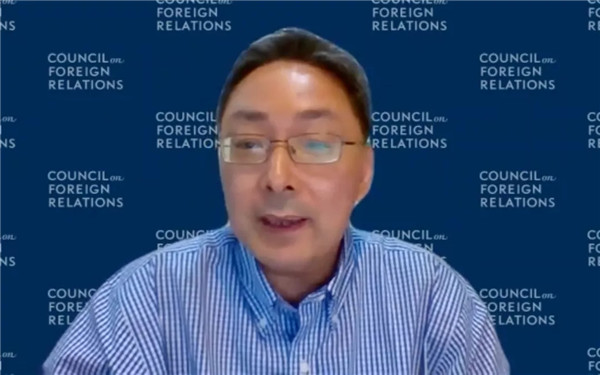
Huang Yanzhong, nonresident senior fellow of CCG and senior fellow for Global Health at the Council on Foreign Relations, applied the theories of neorealism and neoliberalism to explain why major powers had failed to cooperate in the pandemic. He said that ideologies have become central to US-China relations because the response to the pandemic was framed by both US and China as a sort of competition between two political systems. Huang said that a promising area of cooperation between the US and China is talking on travel restriction measures. He said that China-US cooperation is becoming politically difficult at the current stage, but still not impossible.

David Dollar, senior fellow with the Foreign Policy and Global Economy and Development programs of John L. Thornton China Center at the Brookings Institution, said that great power competition is bad for global governance, mainly because of relations between the US and China. He pointed out three sectors in which major divergences exist between US and China: public health, climate agreement, and international monetary issues. Firstly, China and the US disagree about the origins and early stages of the COVID-19 virus. Secondly, since signing the Paris Accord, both China and the US have not really been active in carbon reduction, and the US even exited the agreement. Thirdly, many African countries cannot service the debts they’ve built up because of the global economic recession, and global coordination is needed to assist the poorest countries—many of them need larger debt redemption, ideally an IMF act. However, Dollar added that in disputes over the Paris Club and the positions of the developing countries, neither the US nor China has shown leadership. He concluded by expressing disappointment on the actions of the two countries.
How Will the Future Look?
a
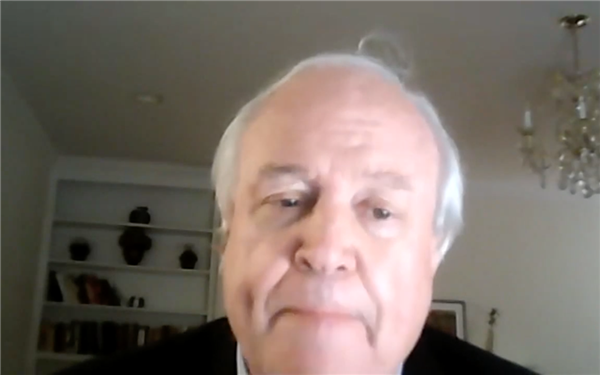
Jorge Heine, nonresident senior fellow of CCG, research Professor at Pardee School of Global Studies of the Boston University, and former senior public policy fellow at the Wilson Center, stressed that due to the lack of international cooperation, the pandemic combined with the social crisis has become the worst crisis in Latin America in a hundred years, especially for poorer countries. He said that considering human impact on the natural world, another crisis like this pandemic might occur again soon. Heine pointed out that the pandemic is a wake-up call for humanity, warning people to change the way the international community responds to the global crisis and also modes of development that are destructive to nature.

Torsten Oltmanns, professor of Political Economy at the Quadriga University and managing partner of the GAULY Management consulting, said that he and his team analyzed public health systems in 88 jurisdictions representing 95% of global GDP, and found that excellent public health service is only partly driven by economic strengths and that there are many other contributing levers, like comprehensive stakeholder involvement, accountability frameworks, and scenario-based measures ranging from “risk reduction” to “all-or-nothing” approach. Regarding the COVID-19 pandemic, the study indicated that harm reduction approaches based on scientific evidence are highly correlated (40%) with a successful fight against the pandemic.
In the Q&A session, Wu Zunyou and Ye Baixin, hematologist at Renmin Hospital of Wuhan University, discussed the concerns of developing countries regarding the priority distribution of vaccines in developed countries and international exchanges between doctors during the pandemic.
Wu said that when the vaccine becomes available in China, it will become a public product, meanwhile, the World Health Organization is making plans to ensure that everyone in the world has a fair chance to use the vaccine.

Ye said that cooperation between doctors and scientists is very important. During the epidemic, he built a platform for academic exchange and writing for more than 2,000 doctors from all over the world, allowing doctors from all over the world to unite and share their views.






